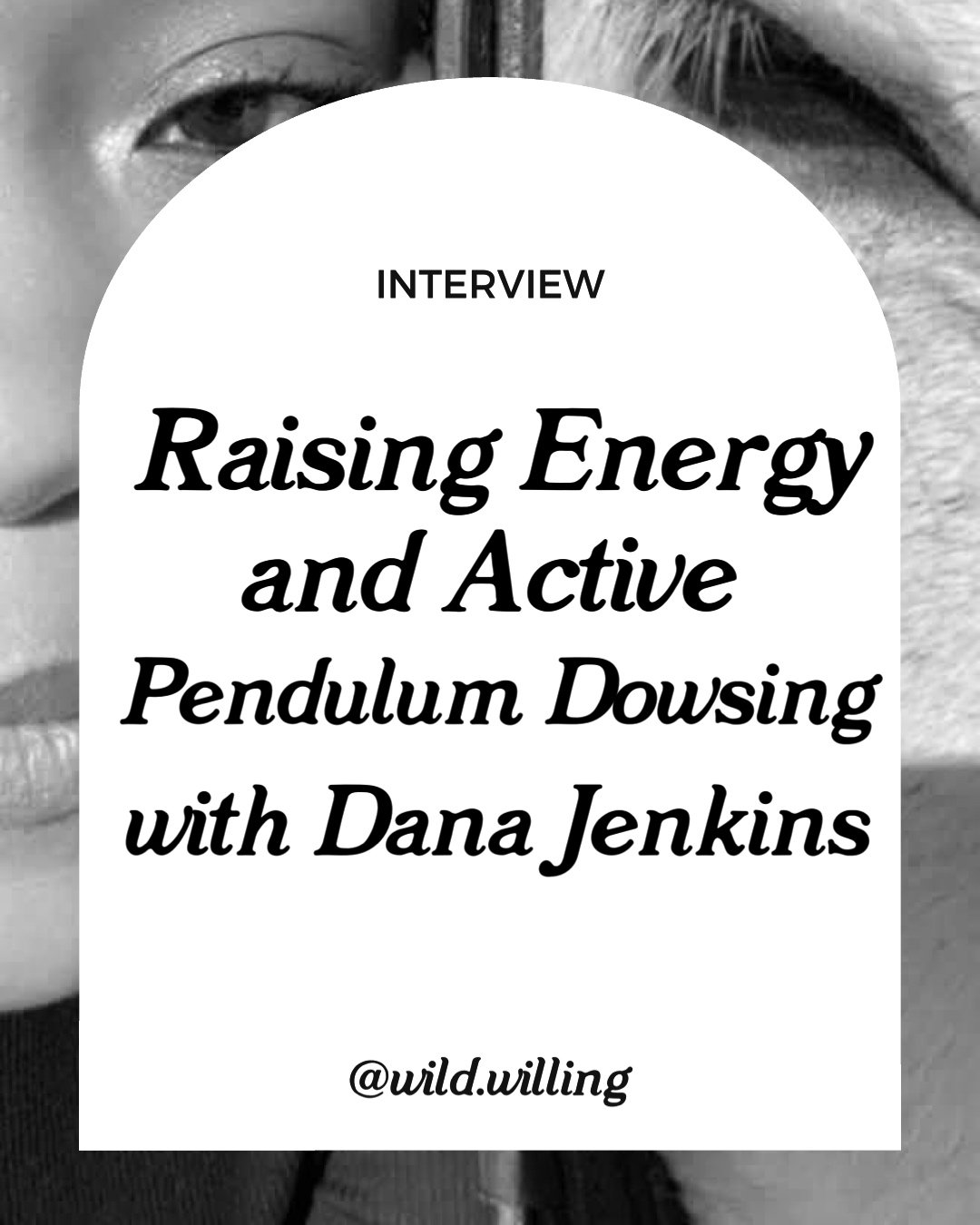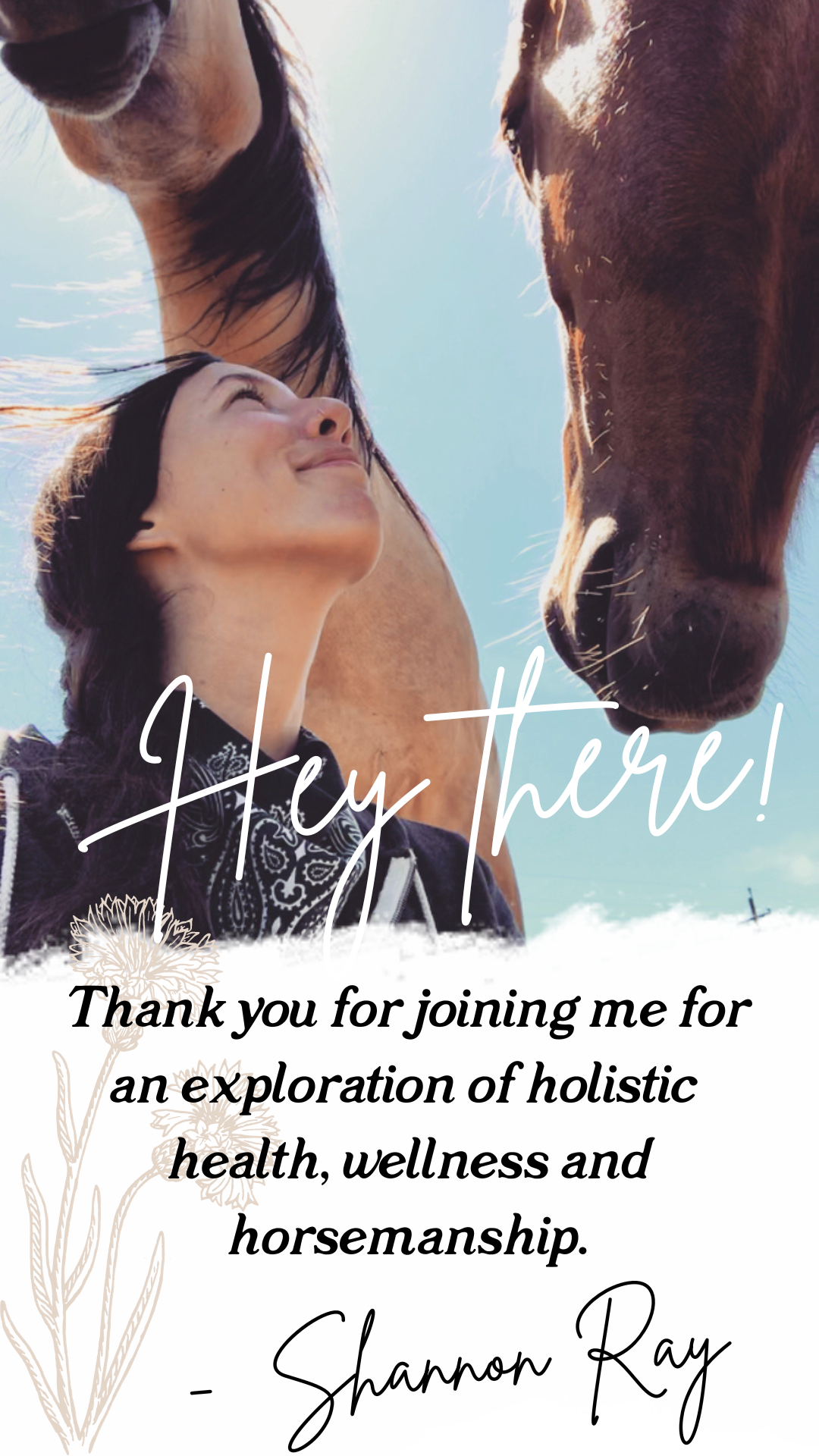Botanical Medicine and the Divine Feminine with Jordan Stanton
What I perhaps love most about the work Jordan Stanton is doing with horses, is that you can’t talk about her work without talking about ‘horsewomanship.’
Sadly, yes, all of my technological devices still autocorrect ‘horsewomanship’ to ‘horsemanship’. Sure, it’s a made up word (isn’t every word though?), but nonetheless it’s a small change in wording that actually represents a huge shift in thinking.
In episode #8 of the podcast, I spoke with Jordan Stanton of JS Horsemanship, who calls attention to the power of women in the horse world through her intentional use of horsewomanship. After listening to my interview with Jordan, I think you’ll agree that it deserves greater recognition as a majority of people in the horse industry are, in fact, women. And if you aren’t already proud to be a woman doing work with horses, or singing the praises of one you know who is doing it, surely now is the time to do so.
Jordan has made it her business to improve the welfare of horses through botanical medicine, and to educate people about how horses transform our souls and invite us to heal in a remarkable way.
Jordan is a lifelong horsewoman, herbalist, and marketing maven. She has been practicing herbalism for 25 years, and is a plant medicine woman in her blood and bones as her great grandmother was an indigenous healer in Oaxaca, Mexico. She offers workshops, classes, and wellness consultations on how to offer plant medicine to horses.
Read on or listen here to learn about the importance of offering horses access to herbal medicine, why Jordan believes (and I second) that horses and the human soul speak the same language, and how integration is key to turn undigested experiences that manifest as trauma into wisdom.
What got you started on the plant path and how long have you been working with herbal medicine?
So my great grandmother was an indigenous healer from Oaxaca, Mexico. And although I never met her, she died when my mom was 13. She raised my mom and I think instilled a plants into my mom. And so growing up, it was like innate in me. I remember looking at flowers and being like, those are gladiola's, those are this, those are that. And like never having been told the names of flowers, those are Petunias, like just new. And growing up, I would make my mom take me into all these like, this was like the 80s in Phoenix. And so these really weird hole in the wall health food stores. And I would always like direct wherever I was doing brick and stocks. And it was not, there were no whole foods back then. I would make her take me in there so I could look at all the herbs. Then when I turned 19, I went officially enrolled in herb school. It's been 25, 26 years of formal study, but I've been working with plants my whole life.
So you've done the formal studies, but what do your relationships with plants look like? Do you grow them? Is that the best way to get to know them and what they do?
Oh my gosh. Well, right now I don't have a garden because we moved onto this big property and I've been working on horse fencing and horse... Horses had to come first and their comfort. But I have in the past had really big gardens and I just can't recommend enough the practice of gardening to get to know plants because we get really separated from our relationship with plants. I think thinking that it's like, oh, it's this little bottle and it's this thing that I take or this capsule or this powder. Whereas when we grow the plant, we get to see it through all the seasons. We get to see it through all the stages of its life. And we begin to develop like an ally ship with the plant where it becomes another being as opposed to just something that we take or ingest.
So if you don't have, well, I think gardening, we can have like a huge garden, or we can just have like pots or containers and those work too. I do classes on herbal gardening for horse owners or pet owners. This year I've been doing that just to encourage people to grow plants, but I'm like, a garden can just be like a couple of pots on your porch. It doesn't have to be an acre. or even raised beds. Like you can start really, really small. And where I am now, we live in a reserve up that butts up against public land. And so I spend a lot of time with the plants, just sitting with the plants, connecting with the plants, doing, I think what would be more traditionally called like plant spirit medicine, but I kind of have my own way of doing it. And learning from the plants on like an energetic level is another lovely way. to work with them too.
How is it so important for our horses to have access to herbal medicine as well?
Some don't have access to pasture and for some of them it's not appropriate. Like if my mare was on a green pasture that would not be good for her. But in a more natural setting horses would browse and they wouldn't just eat grass, they would eat herbs, they would eat tree bark, they would eat shrubs and they really would kind of gravitate towards what they needed.
And I encourage people to put a bowl of herbal tea out and offer a few different kinds or dried herbs and just see what your horse wants to consume as kind of an experiment and people will often be surprised. So it's fun. And I think it puts us back in the perspective of trusting that they have wisdom too about their bodies, like innate wisdom. We do too, we just separate from it as human beings.
We're taught to like be in our head and not in our body. But I think that's the gift herbal medicine, at least the path that I was taught, it was about embodiment and it was about trusting your body and your intuition and having knowledge about your body and being able to make healthcare choices from that place, as opposed to from, you know, a mental or more disembodied state.
Want to read more?
The full-length post is available to members of The Herd. Membership includes access to monthly bonuses like this and more! Join The Herd here.
Learn more about Jordan
Learn more about Jordan’s work with horses and botanicals at JS Horsewomanship, and be sure to follow her on Instagram @jshorsewomanship.













